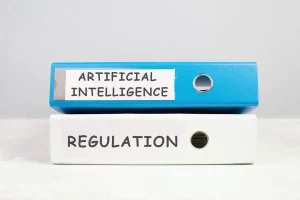Israel’s renowned security service, Shin Bet, has embraced the power of artificial intelligence (AI) to enhance its operations and successfully neutralize significant threats. Shin Bet Director Ronen Bar highlighted the remarkable potential of generative AI in the realm of law enforcement. This development signifies a major stride forward in leveraging advanced technologies to safeguard national security.
Also Read: UK Takes the Lead: Hosting the First Global Summit on Artificial Intelligence
Shin Bet’s Own Generative AI Platform
Emulating the likes of ChatGPT & Bard, Shin Bet has taken a proactive approach by creating its own generative AI platform. This sophisticated technology is a crucial tool for the Israeli counterpart of the U.S. Federal Bureau of Investigations (FBI) or Britain’s MI5, empowering them to proactively identify and mitigate potential threats.
Also Read: Chatgpt-4 v/s Google Bard: A Head-to-Head Comparison

The Natural Integration of AI in Shin Bet’s Operations
During a speech at the Cyber Week conference hosted by Tel Aviv University, Director Ronen Bar expressed his enthusiasm for incorporating AI technology seamlessly into Shin Bet’s interdiction operations. He emphasized that the agency has successfully identified many threats by harnessing the power of AI. This integration has streamlined Shin Bet’s work by efficiently detecting anomalies in surveillance data & sifting through vast amounts of intelligence.
AI as an Indispensable Partner in Decision-Making
Highlighting the versatility of AI technology, Director Bar emphasized its secondary role in decision-making. AI functions as a trusted partner at the table, akin to a co-pilot, assisting Shin Bet personnel in making informed choices. By leveraging AI capabilities, Shin Bet maximizes its potential to tackle complex security challenges effectively.
Also Read: OpenAI Explores Wikipedia-like Model to Democratize AI Decision-Making

Fostering Collaboration for Responsible AI Development
Recognizing the public domain nature of AI technology, Director Bar emphasized the importance of collaboration between commercial hi-tech sectors and government agencies. He stressed the need for cooperation to ensure AI’s evolution rather than revolution. By fostering a symbiotic relationship between these stakeholders, Israel can harness the full potential of AI while upholding ethical and responsible practices.
Also Read: OpenAI and DeepMind Collaborate with UK Government to Advance AI Safety and Research
The Need for Comprehensive AI Regulations
As Israel contemplates its AI policies, Director Bar emphasized the significance of comprehensive regulations. He called for a thorough review of existing Shin Bet-related laws and a redefinition of official secrecy within the framework of AI governance. By proactively addressing these considerations, Israel aims to establish a robust regulatory environment that balances security imperatives and safeguarding individual rights.
Also Read: U.S. Congress Takes Action: Two New Bills Propose Regulation on Artificial Intelligence

Israel: A Global Leader in AI
Israel’s status as a global leader in AI stems from its thriving computing and robotics industries. The country’s technologically-advanced conscript military has fostered a talent pool that fuels innovation and breakthroughs in AI. With its impressive track record and commitment to technological advancements, Israel continues to solidify its position at the forefront of AI research and development.
Also Read: Red Cat & Athena AI Make Intelligent Military Drones with Night Vision
Our Say
Shin Bet’s integration of generative AI marks a significant milestone in the realm of law enforcement. By harnessing the power of advanced technologies, Shin Bet enhances its capabilities in detecting and neutralizing threats effectively. Israel’s proactive approach to AI regulations reflects a commitment to responsible AI development. As AI continues to shape the future of national security, Shin Bet’s pioneering efforts serve as a testament to the immense potential of AI in safeguarding nations against evolving threats.




